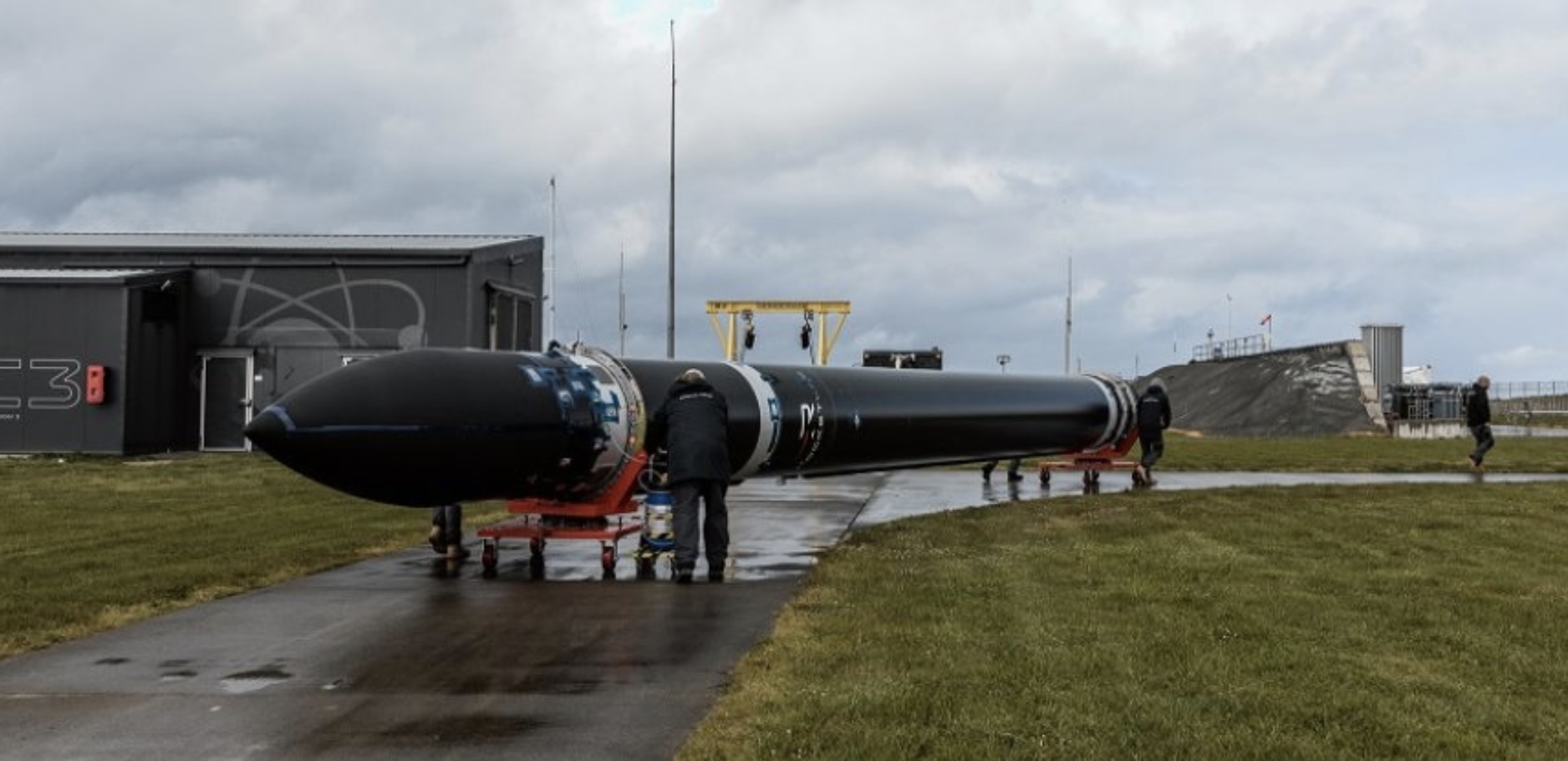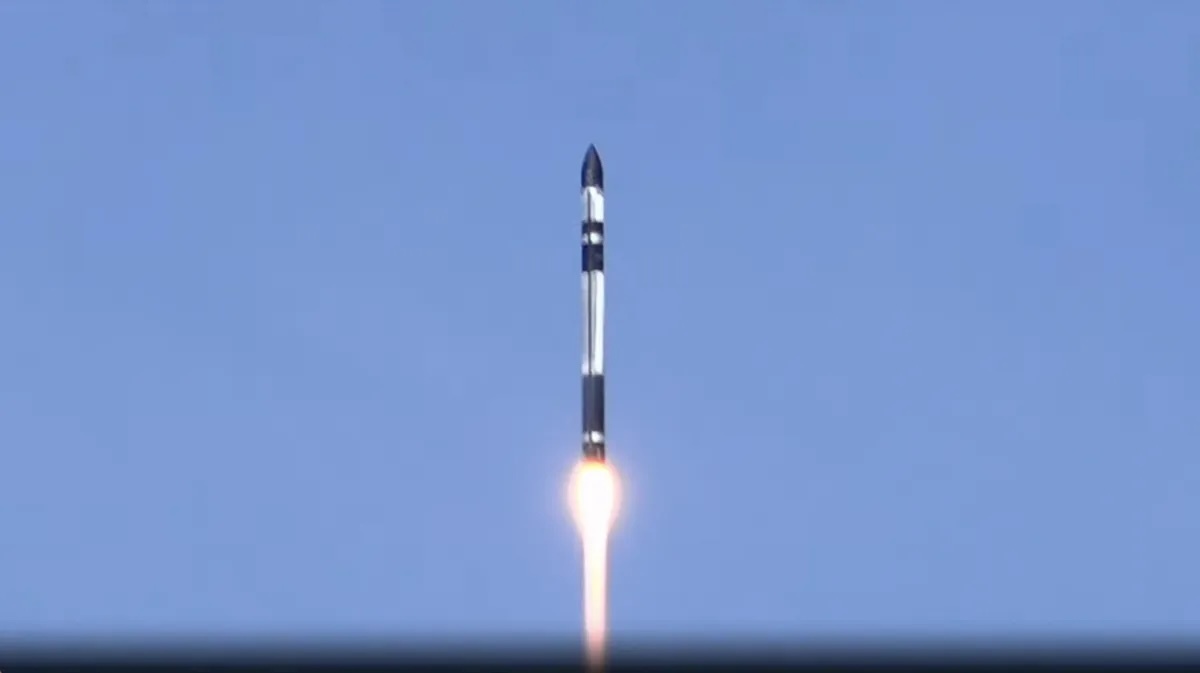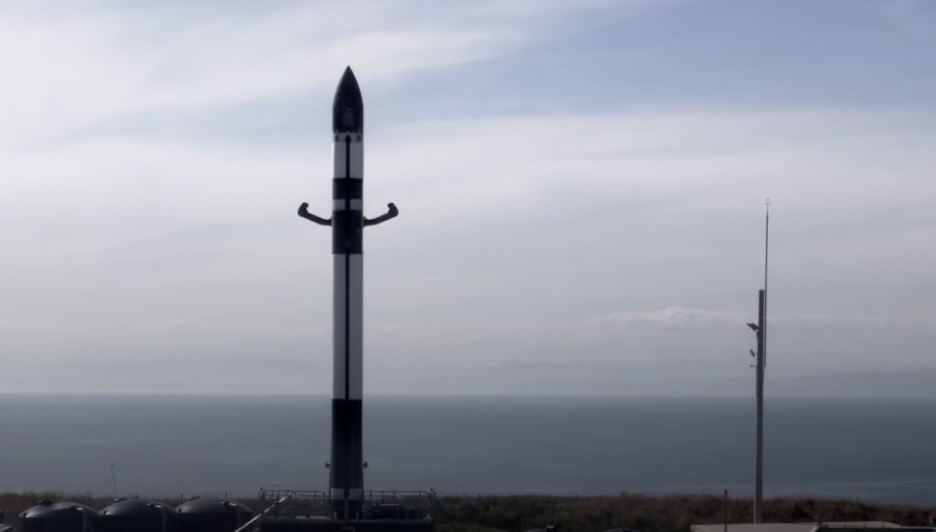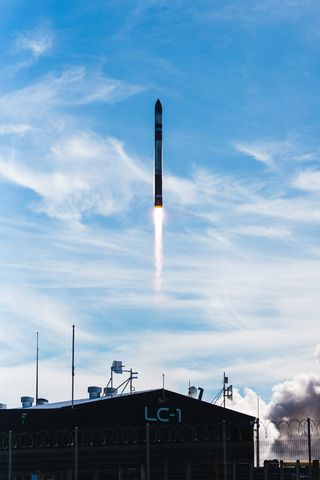19.10.2024
Rocket Lab To Launch Oct. 19 For Unnamed Commercial Customer

Rocket Lab plans to launch an Electron rocket on Oct. 19 for an unnamed commercial customer that contracted for the service just two months ago, marking the company’s fastest turnaround between purchase agreement and flight to date. The flight, which will take place from Rocket Lab’s Mahia, New Zealand.
Quelle: Aviation Week
----
Update: 5.11.2024
.
Watch Rocket Lab launch mystery mission early on Nov. 5
Liftoff of the mission, which is for a "confidential commercial customer," is scheduled for 5:30 a.m. ET on Tuesday (Nov. 5).

Rocket Lab plans to launch a hush-hush mission early Tuesday morning (Nov. 5), and you can watch the action live.
The mission, for a "confidential commercial customer," is set to lift off atop an Electron vehicle from Rocket Lab's New Zealand site on Tuesday at 5:30 a.m. EST (0930 GMT).
Rocket Lab will webcast the launch live, beginning 30 minutes before liftoff. Space.com will carry the feed if Rocket Lab makes it available.
That's pretty much all we know about it, however; the company did not provide further information, presumably at the request of its unnamed customer.
"Changes in Latitudes, Changes in Attitudes" will be Rocket Lab's 12th launch of 2024 and 54th overall. All of these missions have been performed by the 59-foot-tall (18 meters) Electron, which is designed to give small satellites dedicated rides to Earth orbit or beyond. (An Electron launched NASA's CAPSTONE mission, which sent a cubesat to the moon.)
But that will change soon, if all goes according to plan: Rocket Lab is developing a larger, partially reusable rocket called Neutron, which is expected to debut next year.
Quelle: SC
----
Update: 25.11.2024
.
Rocket Lab launches 200th satellite to orbit
Liftoff of the five-satellite "Ice AIS Baby" mission occurred at 10:55 p.m. ET on Sunday night (Nov. 24).

Rocket Lab launched five "Internet of Things" (IoT) satellites to orbit on Sunday night (Nov. 24), continuing to build out a constellation for the French company Kinéis.
An Electron launcher carrying five of Kinéis' spacecraft lifted off from Rocket Lab's New Zealand site Sunday at 10:55 p.m. EST (0355 GMT and 4:55 p.m. local New Zealand time on Nov. 25).
The five IoT nanosatellites were deployed into a 400-mile-high (643 kilometers) orbit about 66 minutes after liftoff as planned. The achievement pushed Rocket Lab's lifetime satellites-deployed tally over 200, to 203.
Kinéis booked five Electron launches to build its 25-satellite constellation in low Earth orbit. Sunday night's mission, which Rocket Lab called "Ice AIS Baby," was the third such flight; the first two launched in June and September of this year.
Kinéis' IoT constellation will provide "precise connectivity and location tracking of any object anywhere on the planet," the company wrote on its website. "Whether you're on the open sea, in remote areas or under extreme weather conditions, Kinéis ensures reliable, continuous data transmission so you can benefit from accurate information available at all times."
"Ice AIS Baby" was the 13th orbital launch of 2024 for the 59-foot-tall (18 meters) Electron and its 55th orbital mission overall. Sunday's launch came less than 24 hours after Rocket Lab sent a suborbital mission skyward from its pad on Virginia's Wallops Island, marking the first time the company has ever achieved such a spaceflight doubleheader.
Electron is the only launcher in Rocket Lab's stable, but that won't be the case for much longer. The California-based company is working on a larger, partially reusable rocket called Neutron, which is expected to debut in 2025.
Quelle: SC
+++
Rocket Lab Successfully Launches Two Missions in Less Than 24 Hours

Two missions launched in less than 24 hours from two pads in two different hemispheres, setting a new company record for fastest launch turnaround.
MAHIA, New Zealand--(BUSINESS WIRE)-- Rocket Lab USA, Inc. (Nasdaq: RKLB) (“Rocket Lab” or “the Company”), a global leader in launch services and space systems, today successfully launched its 56 th Electron mission, deploying five satellites to Low Earth Orbit for French Internet-of-Things (IoT) constellation operator Kinéis.
The “Ice AIS Baby” mission lifted-off from Rocket Lab Launch Complex 1 in Mahia, New Zealand at 4:55 pm on 25 November NZDT (03:55 UTC), successfully deploying five satellites to a 643 km low Earth orbit. The mission was Rocket Lab’s 14 thmission of 2024 and 56 th launch overall. It also brought the total count of satellites deployed by Rocket Lab to 203, further cementing Electron’s position as the leading small launch vehicle globally. The launch took place just 21 hours and 55 minutes after Rocket Lab completed a successful mission from Launch Complex 2 in Virginia, setting a new company record for fastest turnaround between launches.
Rocket Lab founder and CEO Sir Peter Beck said: “Two successful launches less than 24 hours apart from pads in different hemispheres. That’s unprecedented capability in the small launch market and one we’re immensely proud to deliver at Rocket Lab. Customers like Kinéis are unlocking the potential of space and we’re excited to give them the keys to do so with frequent, dedicated, and reliable small launch opportunities.”
Kinéis CEO Alexandre Tisserant, says: “The Kinéis teams have once again demonstrated their technical capabilities as satellite operators by taking control of these five new satellites at a sustained launch rate. This achievement would not have been possible without Rocket Lab’s Electron precision in placing our satellites in their planned positions. With 15 Kinéis satellites now in orbit, we’re one step closer to the full deployment of our dedicated IoT constellation for transmitting data in near-real time, anywhere on the globe. Congratulations to all our teams, who are doing an incredible job - and, let’s not forget, a European first! We’re equally enthusiastic about our second mission, AIS. In a rapidly consolidating market, Kinéis is establishing itself as a sovereign European player, combining technological expertise and strategic independence. With our new AIS offering, we provide maritime players with enhanced visibility over their fleets, while ensuring higher data reliability.”
The “Ice AIS Baby” mission was the third of five dedicated Electron launches for Kinéis, a company backed by private and public investors including the French government’s space agency CNES (Centre National d'Études Spatiales) and CLS (Collecte Localisation Satellites), an international space-based solutions provider, to improve global IoT connectivity. The Kinéis constellation is designed to make it possible to connect and locate any connected object anywhere in the world, enabling data transmission to users in near-real time, at low bit rates and with very low energy consumption. By enabling internet connection to the Earth’s most remote locations, Kinéis constellation can support forest fire detection, water resource management, infrastructure and energy network monitoring, transport and logistics tracking, and much more.
Quelle: RocketLab
